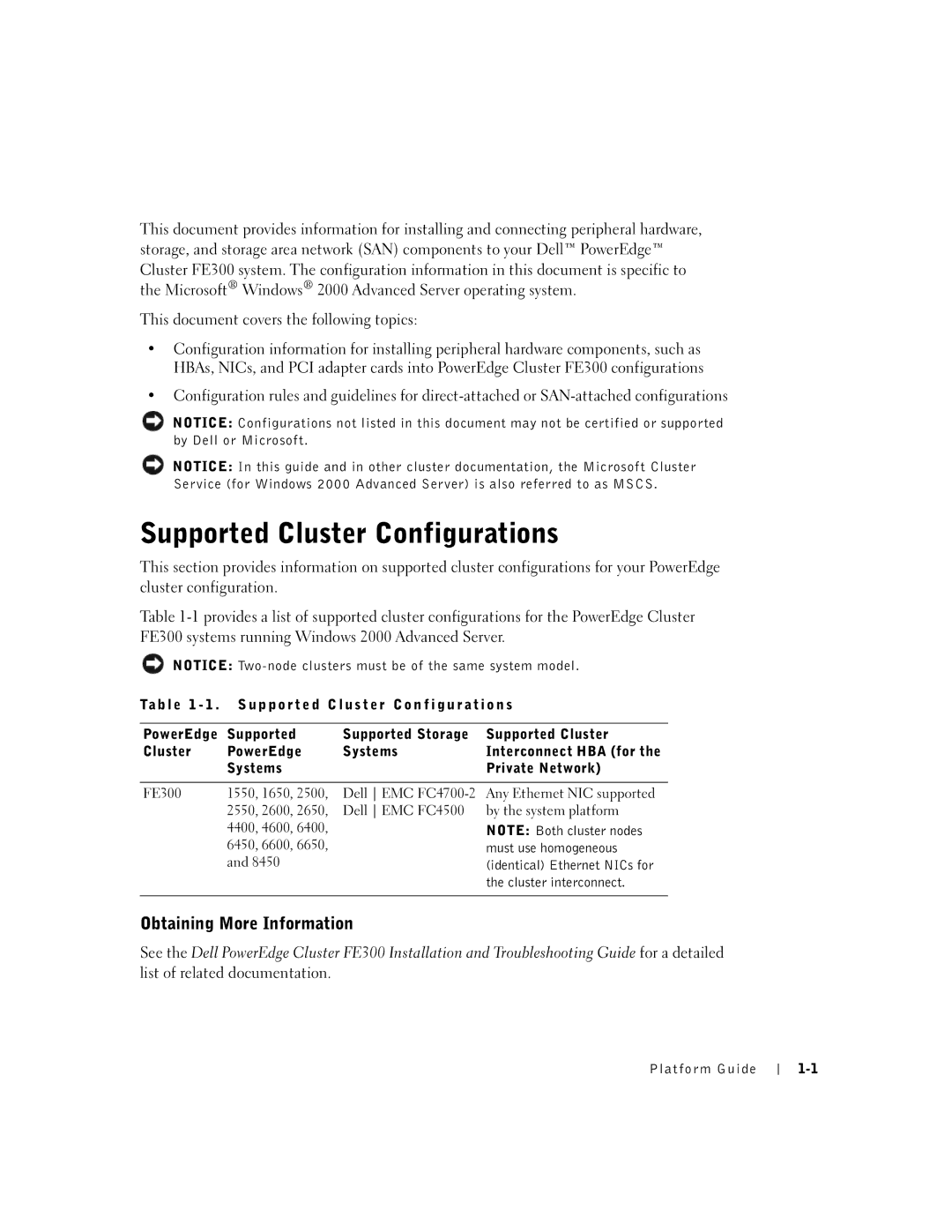FE300 specifications
The Dell FE300 is a state-of-the-art storage solution that caters to the growing demands of data-driven businesses. This flexible and scalable storage system is designed for medium to large enterprises, offering an efficient way to manage large volumes of data while ensuring high performance and reliability.One of the standout features of the Dell FE300 is its robust data protection mechanisms. Built with advanced security protocols, the FE300 safeguards critical data against corruption and unauthorized access. This is achieved through features like encryption, secure data erasure, and snapshot technology, which allows for quick recovery in the event of a data loss scenario.
The FE300 is also known for its exceptional scalability. Organizations can start with a smaller configuration and expand seamlessly as their storage needs grow. This flexibility helps companies avoid unnecessary upfront costs while enabling them to increase their data storage and processing capacities at their own pace. The system's modular design allows users to add additional drives or expansion units without disrupting operations.
Performance is another hallmark of the Dell FE300. It incorporates cutting-edge technologies such as NVMe and SSD caching, resulting in significantly improved read and write speeds. This high performance makes it ideal for resource-intensive applications, such as big data analytics, virtualization, and cloud computing.
Another critical aspect of the FE300 is its compatibility with multiple operating systems and management systems. This versatility allows IT teams to integrate the storage solution seamlessly into their existing infrastructure. Furthermore, the Dell FE300 provides powerful management tools that simplify the monitoring and management of storage resources. Its intuitive interface helps administrators make informed decisions regarding data allocation, performance optimization, and maintenance scheduling.
In terms of connectivity, the FE300 offers various options, including Fibre Channel and iSCSI interfaces. This ensures that it can be easily integrated into diverse environments, whether it's on-premises, hybrid, or purely cloud-based architectures.
The Dell FE300 embodies the ideal storage solution for enterprises looking to enhance their data management capabilities. With a blend of performance, scalability, and robust security features, it positions itself as a key player in the enterprise storage market, enabling organizations to thrive in an increasingly data-centric world. As technology continues to evolve, the FE300 stands ready to adapt, ensuring that businesses remain at the forefront of innovation.

